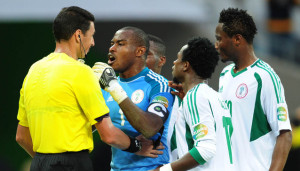The performance of African referees has been a subject of debate and controversy, especially in recent World Cup qualifying matches. Refereeing decisions, perceived bias, and suspicions of corruption have fueled criticism from players, fans, and media. Instances like the controversial penalty awarded by Zambian referee Janny Sikazwe in the Burkina Faso vs. Algeria match have intensified the scrutiny on officiating.
Several incidents across different African countries, including Togo and Tunisia, have contributed to a growing sentiment of distrust towards referees. The Togolese league, in particular, has witnessed confrontations between supporters and referees, leading to concerns about the safety of match officials.
The question of introducing additional assistance for referees, such as video technology, has been raised. UEFA has already implemented the use of goal-line technology, while the Premier League has utilized video assistance to determine whether a ball has crossed the line. However, concerns remain about the potential impact on the flow of the game and subjective decisions.
Despite the challenges, there is a call for fair play and a recognition that referees are human and prone to errors. Burkina Faso’s Jonathan Pitroipa emphasized the importance of playing football to please supporters and promoting fair play, acknowledging that football is a game that brings nations together.
The debate over the performance of African referees reflects broader discussions on the role of officiating in football and the need for continuous improvement and training within refereeing bodies.











